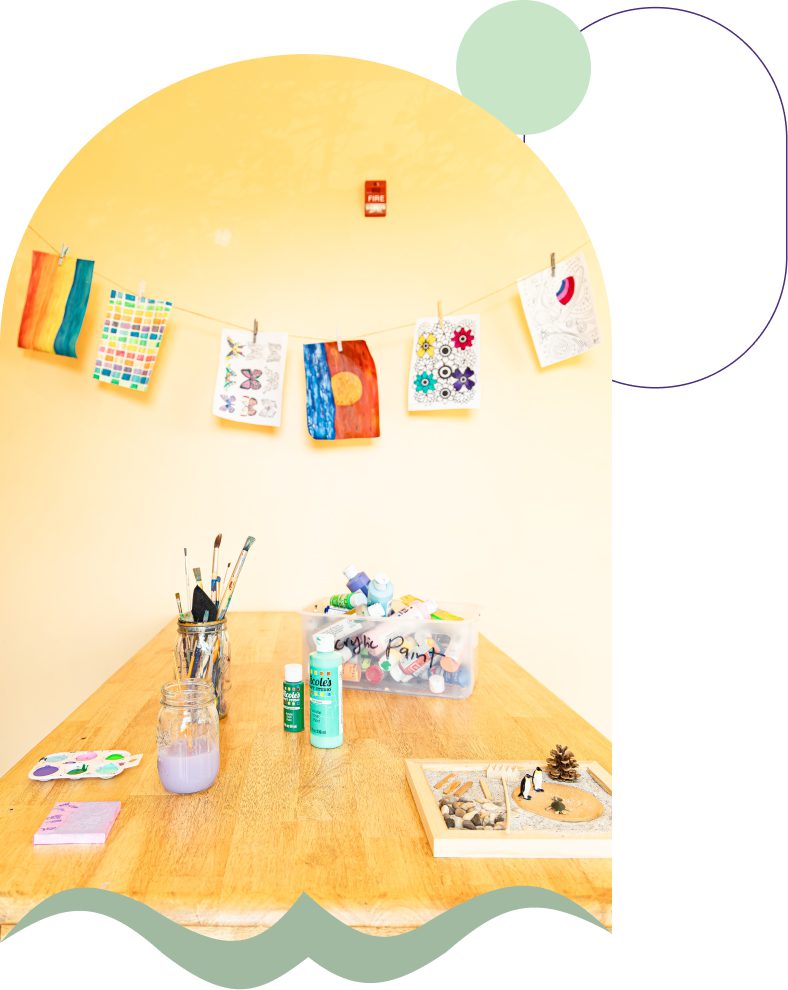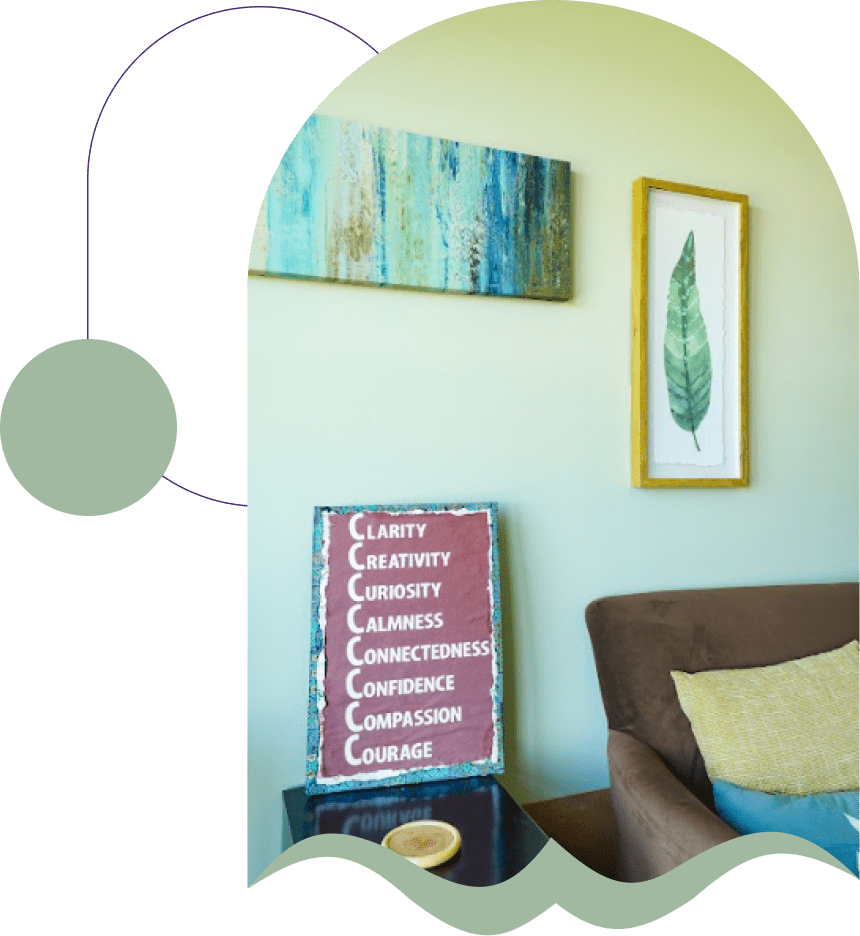Group Therapy
Group Therapy At Art of Awareness

Teen Coping Skills DBT Group
Enrollment: Designed for adolescents, ages 14-18 years
Type: Open Enrollment
Model: Support group with weekly themes
Benefits of group: Develop strategies to cope with anxiety, understanding big emotions, effectively navigating difficult social situations and supporting self-discovery. This is a Dialectical Behavioral Therapy (DBT) informed group.
Platform: In-person
Date/Time: Wednesdays, 3:30-5:00 PM
Art Therapy Processing Group
Enrollment: Designed for adults of all ages 18+ years
Type: Open Enrollment
Model: Support group with weekly themes
Benefits of group: Strengthen and enhance coping skills throughout this group so that clients may be better equipped to manage stress, anxiety, depression, and process life changes.
Platform: In-person
Date/Time: Tuesdays, 4:30-5:30 PM


Eating Disorder Recovery Group
Enrollment: Designed for adults, ages 18 years and older
Type: Semi-closed group, welcoming new members on a monthly basis
Model: Support group with weekly themes
Benefits of group: This group will focus on managing symptoms of recovery based on the book “8 Keys to Recovery from an Eating Disorder” by Carolyn Costin and Gwen Grabb.
Platform: In-person
Date/Time: Thursdays, 4:30-6:00 PM
Parent Processing Group
Enrollment: Parents or guardians with children aged 5-17 who exhibit challenging behaviors (ie. safety, aggression, defiance) and/or diagnoses (ie. ASD, ADHD, ODD, etc)
Type: Semi-closed group, welcoming new members on a monthly basis
Model: Support group with weekly themes
Benefits of group: Building connections and community; Strengthening parenting skills
Date/Time: Thursdays, 12:00-1:00 PM
Platform: Virtual/Telehealth
Start date: Thursday (3/6/2025)


Mens Support Group
Enrollment: 18 years +, open to anyone identifying as a man
Type: Semi-closed group, welcoming new members on a monthly basis
Model: Support group with weekly themes
Benefits of group: Skillfulness in relationships; Increasing empathy and compassion.
Date/Time: Wednesdays, 6:30-7:30 PM
Platform: In-person
Drama Therapy Group for Distress Tolerance
Enrollment: Designed for adults ages 18 years and older
Type: This will be a closed-enrollment group to promote safety, trust, and safe exploration
Model: 8 week module
Benefits of group: Offers participants the opportunity to explore themes related to uncertainty and distress tolerance, in both an individualized and shared group format. Participants will engage in character development, scene work, improvisation, self expression and movement. Drama Therapy is the intentional use of drama and/or theater processes to achieve therapeutic goals. In addition to distress tolerance skills, participants will be supported in strengthening skills related to: emotional regulation, embodiment, play and life-skill development (e.g. communication, advocacy, integration).
Date/Time: Mondays, 5:30-7:00pm
Platform: In-person
No previous experience in performance or drama therapy is required. All levels of interest and experience are welcome to join.

The Advantages of a Group Experience
This collective dynamic encourages members to express their feelings openly and gain new perspectives, enhancing their own emotional understanding and coping strategies. The empathetic connections formed in group therapy not only reduce feelings of isolation but also empower participants to explore new behaviors and attitudes within a safe and supportive framework. As individuals witness the progress of others, their own hope and motivation are bolstered, driving meaningful change in their lives.
Our commitment is to provide the emotional relief that comes from sharing your experiences and to provide a pathway to a more resilient and fulfilled life in which you achieve your goals and reach your full potential.
Benefits of Group Therapy
Our Group Therapy programming includes low-stress, creative, mindfulness-based group activities have been proven to encourage nervous system resets and reduce stress. These activities provide not only a therapeutic outlet but also a way to reconnect with the joy of social interactions in a safe and supportive setting.
Engaging in creative activities has been shown to activate reward pathways in the brain, reducing anxiety and improving mood, making these activities an excellent choice for stress relief and emotional well-being. Furthermore, the process of creating art can help externalize difficult emotions, which is particularly beneficial for those who find it challenging to articulate their feelings into words.

